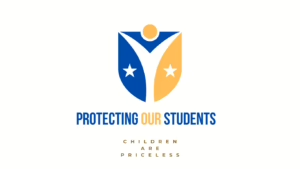 By Robert Jordan, Protecting Our Students
By Robert Jordan, Protecting Our Students
Do School Cellphone Bans Really Work? Early Evidence Offers Insights
Introduction
As states across the U.S. implement cellphone bans in schools, a central question emerges: Do these policies achieve their intended goals of improving student behavior and academic outcomes?
Early findings from two major research initiatives offer valuable insights. While evidence suggests certain benefits, results remain mixed, highlighting important considerations for educators and policymakers.
Stricter Policies Linked to More Focused Classrooms
A nationwide survey of 20,000 public school teachers—part of the Phones in Focus project led by University of Pennsylvania psychology professor Angela Duckworth—indicates that stricter cellphone policies are associated with more focused classroom environments.
Teachers reported that policies requiring phones to be stored in pouches or lockers—rather than in students’ pockets or backpacks—correlate with fewer classroom distractions. Duckworth notes that physical distance from temptations, such as a buzzing phone, can reduce their influence on attention and behavior.
“Bell-to-bell” bans, which restrict phone use for the entire school day, appear particularly effective in elementary and middle schools, where approximately 75% of teachers report such policies, compared to about 25% in high schools.
Florida’s Statewide Ban: Modest Academic Gains and Attendance Improvements
In 2023, Florida became the first state to enact a statewide cellphone ban. Researchers David Figlio (University of Rochester) and Umut Özek (RAND Corporation) examined outcomes from a large urban school district following the ban.
Their analysis compared schools with higher pre-ban cellphone use to those with lower use. Results showed modest academic gains—approximately 0.6 percentile points overall, with slightly higher improvements (1.1–1.4 percentile points) among male, white, Black, and secondary school students by spring 2025.
Attendance also improved, particularly in unexcused absences, suggesting that students were more consistently present and engaged during class.
Implementation Challenges and Short-Term Suspension Increases
The Florida study also observed a temporary increase in student suspensions, rising by as much as 12% during the first year of implementation, with a disproportionate impact on Black students.
By the second year, suspension rates largely returned to pre-ban levels. The researchers suggest that enforcement practices and adaptation periods may influence these early outcomes.
Figlio recommends that schools consider gradual implementation strategies and grace periods to help students adjust to new expectations and minimize disciplinary disruptions.
The Importance of Evidence-Based Policy Design
Currently, at least 31 states and Washington, D.C. have implemented some form of cellphone restriction, with 22 states enforcing “bell-to-bell” bans.
Duckworth’s ongoing Phones in Focus research, expected to include 100,000 teachers by the end of 2025, aims to further examine how factors such as storage method, enforcement consistency, and school level affect academic and behavioral outcomes.
Our Perspective at Protecting Our Students
At Protecting Our Students, we recognize the complexity of implementing cellphone policies in diverse educational settings.
While evidence points to potential benefits—such as increased focus and improved attendance—policy design and enforcement must be approached thoughtfully to avoid unintended consequences, especially for vulnerable student groups.
Schools may benefit from secure phone storage solutions and phased rollouts that promote fairness, consistency, and long-term success.
As additional research emerges, Protecting Our Students will continue to highlight strategies that support safe, equitable, and effective learning environments.
For More Information
For more resources and updates on creating safe and focused school environments, visit:
👉 www.protectingourstudents.org
Note: This article draws on research reported initially by Education Week on October 24, 2025.
